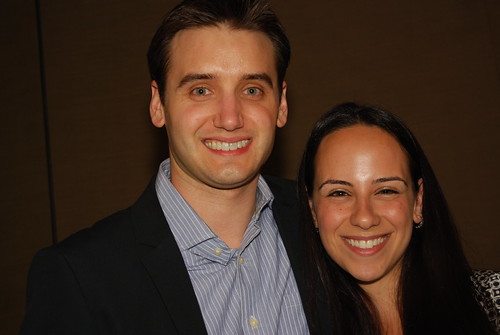Last week, Andy Abramson from Communicano invited me to an intimate breakfast that included developers from multiple countries, executives from ifbyphone,fonolo and venture capitalists. Wonderful food, content and people made for an outstanding conversation!
During Cluecon, I was able to drop in and catch Irv Shaprio’s speech, what follows are my live blogging notes of the session:
What does ifbyphone provide? Phone mashups – combine data from the world wide web with phone inputs and conversations.
ifbyphone goals:
– Technology Agnostic API – any language, host, data or location
– Dialog Support – Voice Forms (IVR), DTMF, Text to Speech, Automated Speech Recognition
– Call Management – outbound (termination), inbound (origination), Scheduling API, Broadcast API, Call Completion API
– Support Services – documentation, blog, user support forum, free development accounts and live support people
Lots of documentation is available, telephone scale
Phone mashup example – getting request from a form
Build a Voice Form Setup Form
Built in grammar allow branching of questions (Survo voice form setup)
ifbyphone uses forms instead of selectors for 100% reliability
Check out phonemashup.com for more examples.
Marketing people are using this to put the telephone into the existing treatment processes.
———————
Analysis: ifbyphone is enabling a bridge between web 2.0 and the phone. What I love about this is I think it’s part of a trend, removing silos to create effective solutions for companies and their customers. It’s small space with the potential to have large business impacts in terms of efficiency and customer satisfaction that will be fun to watch develop and watch who steps up to implement the solutions rapidly.
A recent interview of Irv can be found link now broken) here. I certainly look forward to seeing and learning more about how ifbyphone will be impacting business results shortly.

